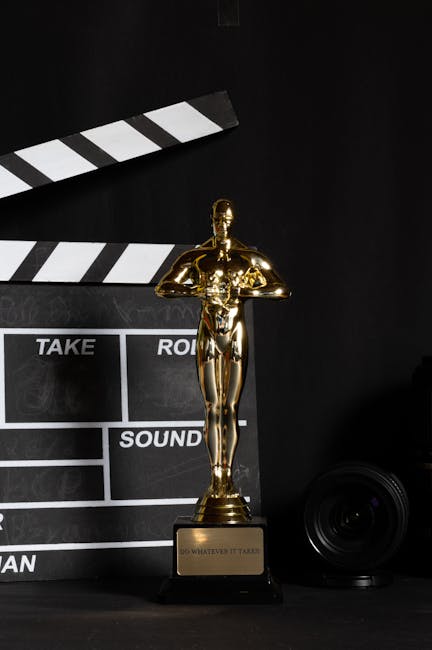The Ultimate Guide to the Best War Movies of All Time: From Epic Battles to Intimate Portraits
War movies. They evoke a powerful range of emotions, from adrenaline-fueled excitement to gut-wrenching sadness, from patriotic fervor to profound moral questioning. They force us to confront the brutal realities of conflict and explore the human cost of war, offering perspectives that can be both horrifying and illuminating. Choosing the ‘best’ is inherently subjective, depending on individual preferences and what aspects of war a film chooses to highlight. However, this guide aims to provide a comprehensive overview of some of the most critically acclaimed and culturally impactful war films ever made, categorized for easier navigation.
Epic Battles and Grand Scale War Films
These films often focus on the large-scale strategic battles and the sheer scale of military operations. They emphasize spectacle, showcasing impressive battle sequences and vast armies clashing on the battlefield.

- Saving Private Ryan (1998): Steven Spielberg’s visceral masterpiece sets a new standard for war film realism, plunging viewers into the heart of the D-Day invasion. Its unflinching depiction of violence and the emotional toll of combat remains unmatched.
- The Lord of the Rings: The Return of the King (2003): While not strictly a war film in the traditional sense, the final battle of Pelennor Fields is a cinematic triumph, demonstrating the scale and spectacle possible in a fantasy epic with profound implications about war and sacrifice.
- Braveheart (1995): Mel Gibson’s historical epic, though historically debated, showcases a powerful and visually stunning portrayal of the Scottish Wars of Independence, focusing on the brutal realities of medieval warfare and rebellion.
- 300 (2006): Based on Frank Miller’s graphic novel, this stylized film depicts the Battle of Thermopylae with stunning visuals and a focus on Spartan heroism and sacrifice. It may not be historically accurate, but it’s undeniably impactful.
- Gettysburg (1993): A meticulously researched and detailed portrayal of the pivotal battle of the American Civil War, this film offers a comprehensive look at the strategy, tactics, and human cost of the conflict.
Intimate Portraits of Soldiers and Their Experiences
These films delve into the psychological and emotional effects of war, focusing on the individual soldiers’ experiences and their struggles with trauma, loss, and moral ambiguity.

- Apocalypse Now (1979): Francis Ford Coppola’s masterpiece explores the psychological disintegration of a soldier sent on a mission into the heart of the Vietnam War, a descent into madness amid the horrors of conflict.
- Platoon (1986): Oliver Stone’s unflinching portrayal of the Vietnam War presents a visceral and controversial perspective on the conflict, highlighting the moral ambiguity of war and the camaraderie and brutality among soldiers.
- Full Metal Jacket (1987): Stanley Kubrick’s chilling depiction of the Vietnam War, focusing on a squad of marines, explores the brutality of training and the dehumanizing effects of combat.
- Come and See (1985): This Soviet film offers a harrowing depiction of the brutality of the Nazi occupation of Belarus during World War II, seen through the eyes of a young boy. It’s not for the faint of heart.
- The Deer Hunter (1978): Michael Cimino’s powerful film portrays the experiences of a group of American soldiers during and after the Vietnam War, exploring the lasting impact of trauma and the psychological damage of war.
Anti-War Films and the Critique of Conflict
These films often challenge the glorification of war, presenting a stark and critical view of the devastating consequences of conflict and questioning the justifications for war.

- Paths of Glory (1957): Stanley Kubrick’s early masterpiece depicts the horrors of World War I and the injustice of the military justice system. It’s a powerful anti-war statement.
- Dr. Strangelove or: How I Learned to Stop Worrying and Love the Bomb (1964): Stanley Kubrick’s satirical masterpiece is a dark comedy that satirizes the absurdity of nuclear war and the dangers of unchecked power.
- WarGames (1983): While a less intense film, WarGames highlights the potential consequences of military technology and artificial intelligence, offering a cautionary tale about the dangers of technological escalation.
- Grave of the Fireflies (1988): This profoundly moving anime film portrays the devastation of World War II from the perspective of two orphaned siblings in Japan, exposing the human cost of war in a deeply emotional way.
- All Quiet on the Western Front (1930 & 2022): Both the original and the recent remake tell the harrowing story of young German soldiers during World War I, showcasing the futility and brutality of the conflict.
Beyond the Battlefield: Exploring the Aftermath of War
These films explore the long-term consequences of war, focusing on its lasting impact on individuals, societies, and the environment.
- Casablanca (1942): Set during World War II, this classic film explores themes of love, sacrifice, and the moral complexities of war and political intrigue.
- The Hurt Locker (2008): This intense film focuses on a bomb disposal squad in Iraq, providing a realistic depiction of the dangers and psychological toll of modern warfare.
- Letters from Iwo Jima (2006): Clint Eastwood’s companion piece to Flags of Our Fathers, this film tells the story of the Battle of Iwo Jima from the Japanese perspective, offering a different and vital view of the conflict.
- Land of Mine (2015): This Danish film depicts the aftermath of World War II, focusing on German soldiers forced to clear landmines on the Danish coast, highlighting themes of forgiveness and reconciliation.
This list is by no means exhaustive, and many other excellent war movies deserve recognition. But it offers a starting point for exploring the rich and varied landscape of war cinema, prompting reflection on the human experience of conflict, its profound consequences, and its enduring impact on our world.

